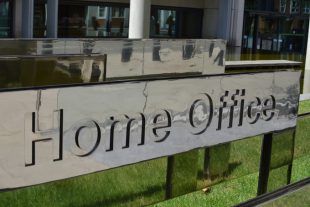
There have been inaccurate and misleading reports in the media that the UK Government is not accepting transfers of unaccompanied asylum-seeking children (UASC) from migrant camps in Europe, most notably those on the Greek Islands.
Protecting vulnerable children remains a key priority of this Government, especially as we go through this unprecedented time.
The Home Office continues to process Dublin cases, including children, as far as we are able given the current circumstances. We are regularly assessing the situation.
Key Points:
- It is incorrect to say the Home Office is refusing to take children from camps in Greece.
- The UK remains open to receive transfers into the UK under the Dublin III Regulation and remain fully committed to meeting our obligations under the regulations.
- We continue to process Dublin cases, including children, and as far as the current restrictions in place across Europe permit.
- Arrangements to complete a transfer have always been and still are the responsibility of the sending State.
- We have a proud record of protecting vulnerable children through our asylum system and our resettlement scheme.
Background:
- Dublin III Regulation cases concern unaccompanied asylum-seeking children who are due to be transferred to the UK to be reunited with family members where it is in their best interest.
- Under Dublin, an EU Member State can request that the UK takes responsibility for the asylum claim of an unaccompanied child on their territory, to reunite the child with the relative who is legally present in the UK.
- The ability to complete transfers has been severely impacted by travel restrictions, broader measures to control the spread of Covid-19 and the reduced capacity of respective Governments.
- However, the UK remains open to receive transfers into the UK under the Dublin III Regulation and remain fully committed to meeting our obligations.
- This is a fast-changing situation and we, along with EU Member States, will be subject to wider decisions from respective Governments, including travel restrictions related to coronavirus.
- While arrangements to complete a transfer from a sending State is still the responsibility of that State, we will always look for creative solutions to support the operation of Dublin procedures. These solutions must be considered in the context of current events.
- We remain in close contact with our partners in sending States in order to keep abreast of updates and establish if there are any alternative options in completing transfers at the earliest opportunity.
Key Stats:
- In 2019, 164 children transferred to the UK under the Dublin III Regulation.
- In total, the UK granted protection to over 7,700 children in 2019 and 42,500 children since 2010.
- This reflects the number of legal routes available for children in need of protection to come to the UK, as well as commitment to our ongoing commitments to those who arrive in the UK.
- The Government committed to resettle 20,000 vulnerable refugees who have fled Syria by 2020 under our Vulnerable Persons Resettlement Scheme (VPRS).
- We are delivering against this commitment. Over 19,300 refugees from Syria have already found safety in the UK to rebuild their lives through the scheme, around half of which are children, and we are on-track to deliver the full commitment in the coming months.
- Alongside this, the UK resettled more than 1,700 vulnerable refugees from the Middle East and North Africa under our Vulnerable Children’s Resettlement Scheme (VCRS), which is the largest re-settlement effort aimed specifically at children and their families from that region.
